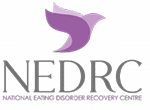When someone you care about struggles with food, the symptoms of the eating disorder touch everyone in the family. The perplexing behaviors can bring frustration, fear and heartache. We know. Our highly experienced team at NEDRC has worked closely with families, friends, and other loved ones to help them cope with the consequences of eating disorders.
Relationships are the core of human existence. Whether it is with family, friends, or a significant other, healthy, positive relationships have the potential to give us secure foundations from which to grow and thrive. While relationships require effort and work from all parties involved to continue flourishing, the benefits that are reaped are countless.
Eating disorders often exist as the antithesis to relationships, consuming an individual with negative thoughts and behaviors that only garner destruction. As an eating disorder develops and progresses further, it often takes the place of wholesome relationships that may have once existed in one’s life. Typically, as an eating disorder grows stronger within a person, relationships with family members and loved ones become strained and gradually diminish.
It is common for family and friends to feel at a loss as they watch their loved one suffer from an eating disorder. While strong bonds may have once existed in a relationship, eating disorders encompass an overwhelming power to destroy companionship and fellowship. The confusion and hopelessness that may arise from feeling unable to help a loved one through an eating disorder are enough to break even the strongest of relationships. What exactly is it about eating disorders that affect relationships?
Eating disorders, by nature, are a mental illness characteriSed by isolation and separation. On the outside, it may appear that an eating disorder is defined by a preoccupation with weight loss and food, but this is simply the tip of the iceberg. Underneath the portrait of perfectionism that is carefully crafted by an eating disorder sufferer lies insurmountable pain and anguish. Eating disorders are survival mechanisms, coping strategies for dealing with underlying issues that may be overwhelmingly difficult to face. When the forefront of one’s attention is focused on food, weight loss or attaining the “perfect body”, one achieves a temporary feeling of control. When circumstances in a person’s life become chaotic and muddled, an eating disorder can develop as a means of staying afloat in drowning waters.
If you have a loved one suffering with an eating disorder, you have likely experienced feelings of helplessness as you try to reach out or preserve the relationship that once was. Encouraging the person you love to “just eat” or refrain from bingeing and purging might seem like the right thing to do, but in actuality, this can further drive a sufferer away. Many eating disorder behaviors are done in secrecy, and the disease is perpetuated in isolation. It is not uncommon for eating disorder sufferers to begin avoiding social functions, and ultimately, relationships and loved ones, as they become more deeply embedded in the illness. Eating disorders become all-consuming, engulfing the individual struggling in negative thoughts and behaviors that harshly severe the most nourishing of relationships.
On this outside, the vicious cycle of an eating disorder is frustrating and complex to understand. Watching someone you love slip into such dark shadows of despair is painstaking, and it is even more difficult to feel as though you are unable to help. If your loved one is battling an eating disorder, you may feel as though your relationship has been replaced by this ferocious disease, or that the person you once loved is now unreachable.
Know that there is always hope for recovery for the person in your life you care for, no matter how deep in their eating disorder they may be. Even though you may feel displaced in the relationship you once had, your continued presence in your loved one’s life can make all the difference. Even if you are at a loss of words or unsure of how to talk to a loved one with an eating disorder, choosing to love and be committed to the person and NOT the disease, can be the encouragement they need to fight for their life. While the process of repairing relationships is a healing journey, it is one of the most beautiful aspects that come with recovery.

